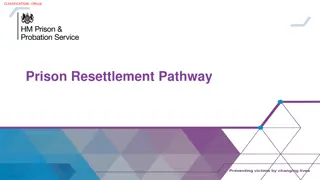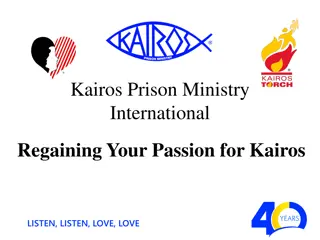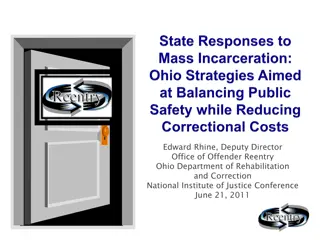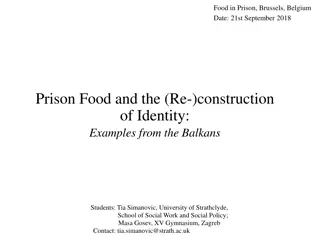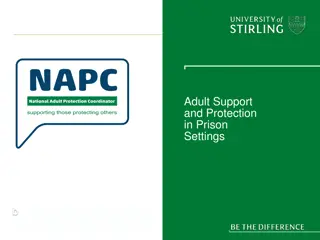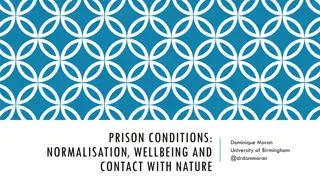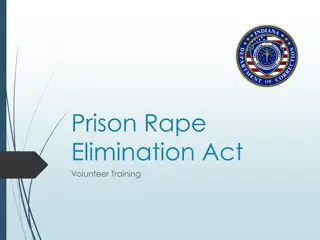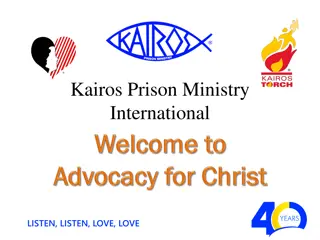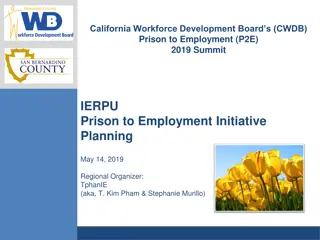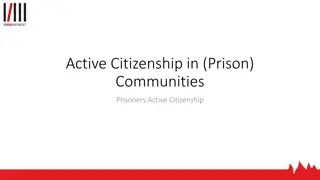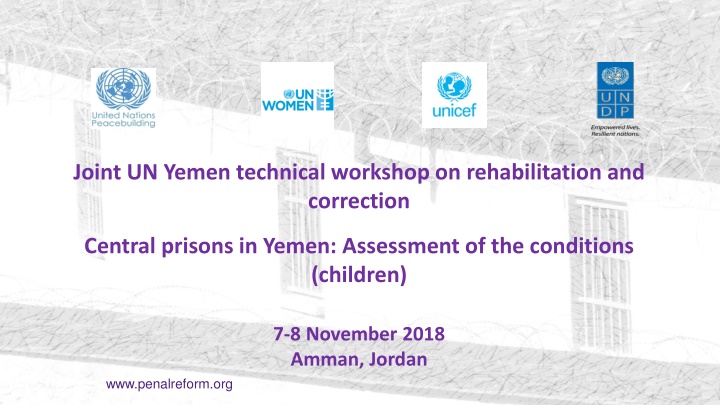
Yemen Children in Detention: Assessing Conditions and Recommendations
Explore the findings from a joint UN workshop assessing the living conditions of children accompanying their mothers in Yemeni prisons, highlighting the lack of educational programs, the need for child care units, and the importance of birth certificates. Recommendations include creating child care units and introducing educational initiatives for these vulnerable children.
Download Presentation

Please find below an Image/Link to download the presentation.
The content on the website is provided AS IS for your information and personal use only. It may not be sold, licensed, or shared on other websites without obtaining consent from the author. If you encounter any issues during the download, it is possible that the publisher has removed the file from their server.
You are allowed to download the files provided on this website for personal or commercial use, subject to the condition that they are used lawfully. All files are the property of their respective owners.
The content on the website is provided AS IS for your information and personal use only. It may not be sold, licensed, or shared on other websites without obtaining consent from the author.
E N D
Presentation Transcript
Joint UN Yemen technical workshop on rehabilitation and correction Central prisons in Yemen: Assessment of the conditions (children) 7-8 November 2018 Amman, Jordan www.penalreform.org
Children accompanying their mothers According to Yemeni prison law, children are allowed to stay with their mothers in detention till the age of two years [Art. (28) of prisons law No.48 for 1991]. After the two years, the child should be handed to his father or legal guardians. While Art. (29) of the same law states that if there are no guardians to whom the child can be handed, the child should be placed in one of the care centers run by the government within the same governorate where the prison is located. The same article of the law gives the right to the Minister of Interior to decide in certain circumstance to keep the child with his/her mother when he/she is older than 2 years. www.penalreform.org
Children accompanying their mothers During the assessment it was found that there are 37 children accompanying their mothers in detention between the age of 2 months to 16 years. Many of them are above the age of 2 years old. For example, in an exceptional case, it was found that there is a girl who is 16 years old and is staying with her mother at Sanaa prison. www.penalreform.org
Children accompanying their mothers According to the assessment, it was found that children accompanying their mothers in detention and of school age are not enrolled in any educational programs and are living in harsh conditions. The exceptions are Al-Amanah Prison in Sanaa and Ibb Prison, where PRI has established Mothers and Babies Units which provide a good environment and takes their needs and well-being into consideration www.penalreform.org
Children accompanying their mothers It is worth mentioning that according to Article No. 29 of the prison law, the prison department is under an obligation to create child care units for these children while in detention. These units don t exist in Mukalla, Al-Mansoura and Thamar prisons. It is highly recommended that UN Women creates such units and introduces educational programs for the children who are of school going age. www.penalreform.org
Children accompanying their mothers the assessment highlighted is the fact that 94% of those children do not have birth certificates. This is a matter that requires intervention from local NGOs and the authorities to help in providing them with official documents. www.penalreform.org


